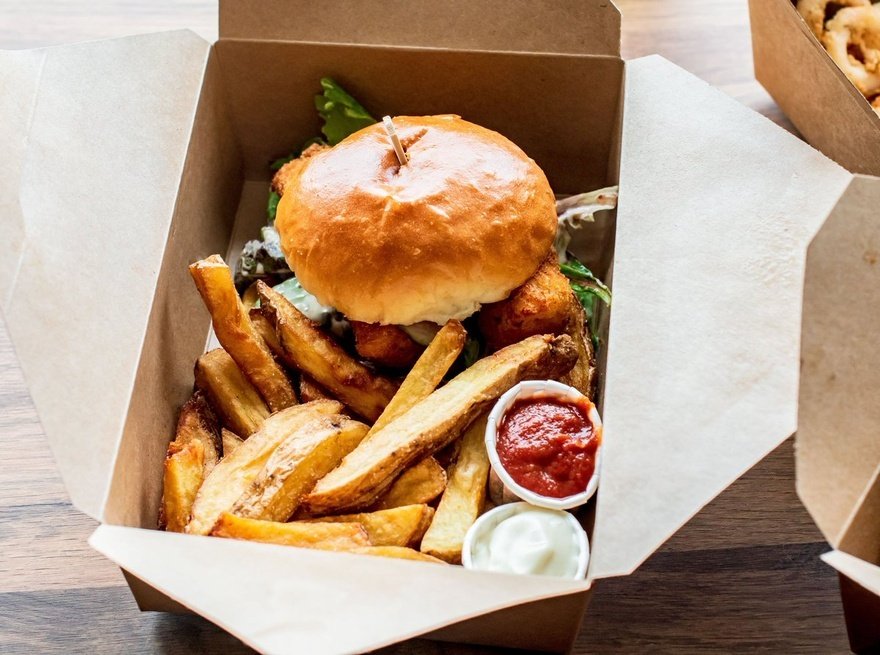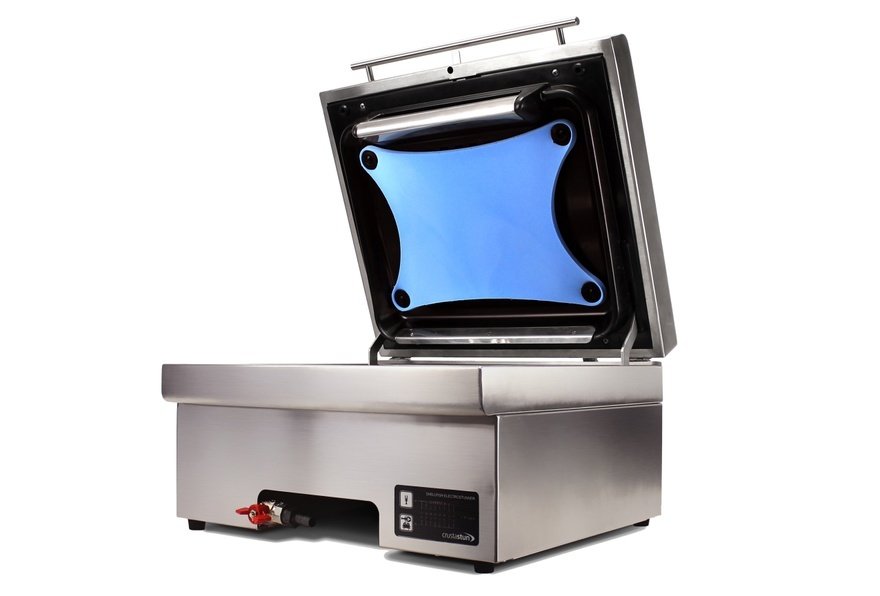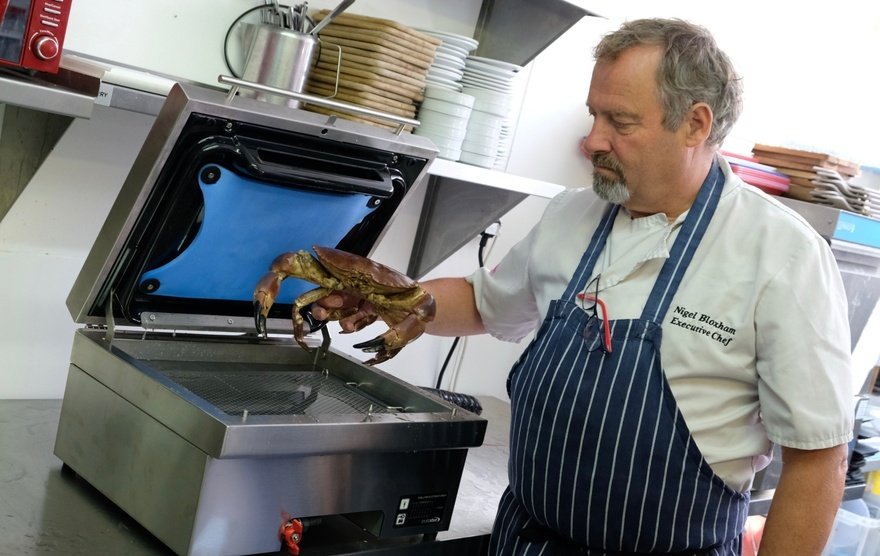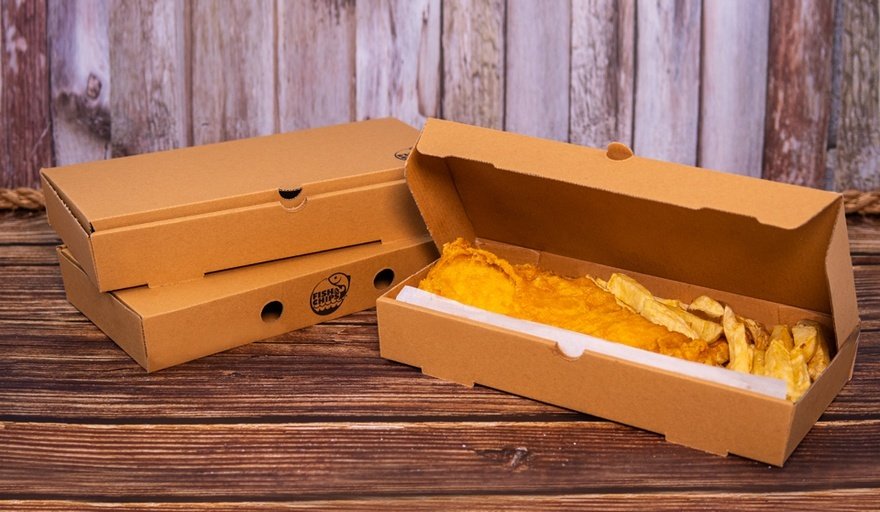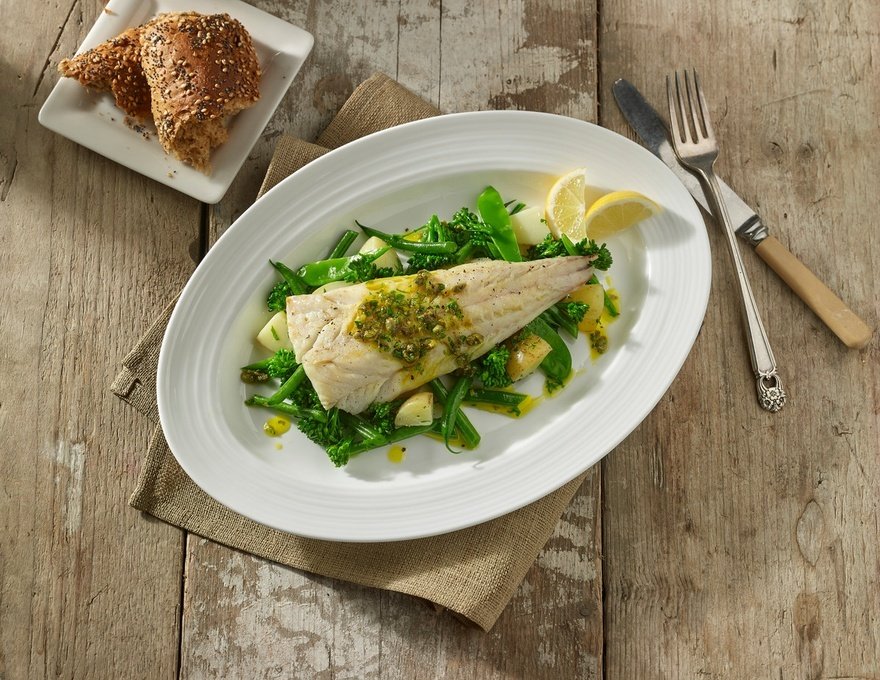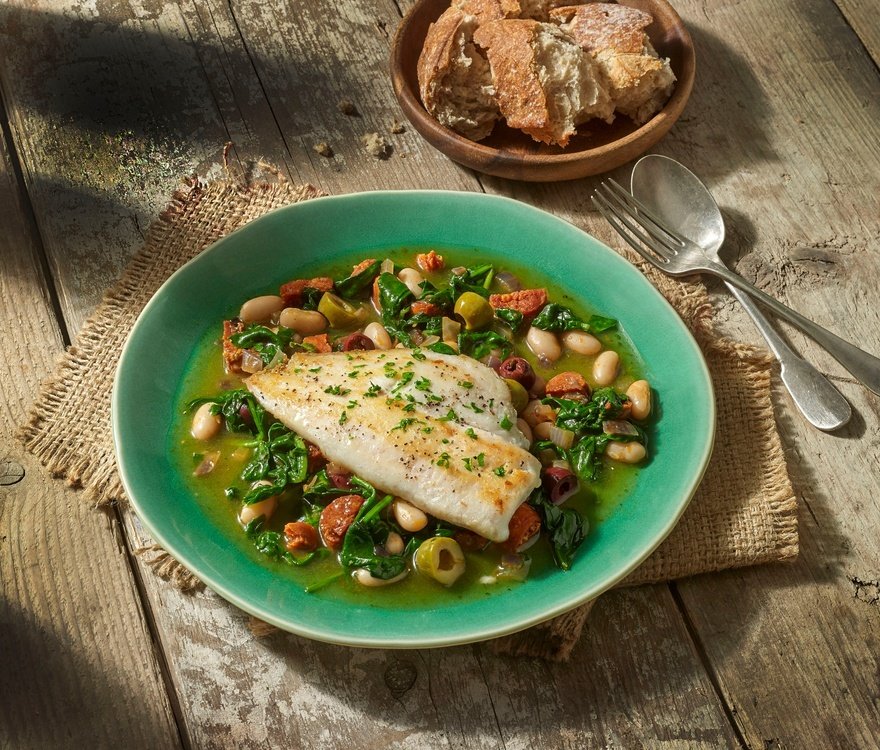Fish and seafood presents a great opportunity for operators, whether as a versatile takeaway option or as a premium offering for guests looking to celebrate. Will Hawkes reports.
The Seafood Bar in Falmouth, Cornwall, is the sort of place that could have been hit hard by lockdown. This tiny venue –which serves small plates and craft beer – can accommodate a maximum of 30 customers, and that's if everyone squeezes up. Under distancing regulations, you might fit 10 punters in the same space: not a recipe for a successful business, you would think, even in a food-friendly place like Falmouth.
Well, think again. Lockdown has worked out pretty well for the Seafood Bar, even if no customers have crossed the threshold since March. Starting in May, it has offered take- away and delivery, and it's been a huge success. Indeed it has been selling more food – lobster rolls, crab-loaded chips, fish tacos –than usual. "It's gone really well," says head chef Andy Lowe. "Whereas before we might have been sending out two or three small plates for each order, now we've got people ordering £200 worth of food. We're certainly working harder!"
This willingness to innovate and change carefully put-together plans is a hallmark of all those food businesses that have come through lockdown relatively unscathed. It's also common among a new generation of seafood-centric restaurants and street-food purveyors, who are carrying this often misunderstood sector into the modern day. Times may be tough for restaurants at the moment, but the example of the Seafood Bar and others like it suggests a brighter future ahead.
The Seafood Bar didn't only pivot from on-site to off-site; the food Lowe and his team cooked changed, too. While comforting grub like lobster rolls has been called for over the past few months, the elegant dishes he and his team produce in more normal times – including pan-fried scallops, and ceviche – have fallen by the wayside. "That's my favourite – ceviche," he says. "Marinated fish, and pickled fish, too."
The business is owned by Cornwall brewery Verdant and it has much of the craft-beer world's open-mindedness. That's increasingly common across the UK, from street-food companies like Cockles & Dreams in Sussex (scallop and bacon rolls, popcorn cockles) and Redshank Catering in Inverness (scallops and cod cheek skewers, lobster macaroni cheese) to restaurants like Bar OM in Peckham, south London, where fish-heavy Vietnamese tapas is paired with cocktails and craft beer.
It reflects a growing adventurousness among customers. That's certainly the case in Falmouth, according to 36-year-old Lowe. "A lot of people here are quite open-minded," he says. "There's the university, and then also you have quite a lot of people here that are, I suppose, young professionals, and they tend to be in the creative industries. They're into stuff that's really different, and trying new things."
Fresh ideas
They're also the sort of customers who are concerned about the ethical implications of what they eat. Operators are responding; at the Crab House Café, a restaurant serving fresh local fish in Weymouth, owner Nigel Bloxham has recently started using Crustastun, an appliance designed specifically for the humane killing of crustaceans.
"The way I've been taught to kill a crab in the fishing industry is to hold the crab upside down, put a knife into its mouthpiece and click upwards to sever the main membrane," says Bloxham, who opened the restaurant overlooking Chesil Beach in 2005. "It's a very unreliable method and it got to a point where I thought ‘I don't think I want to do this any more'."
Crustastun, claims its creators Mitchell & Cooper, is a completely painless process that produces total anaesthesia within half a second, with despatch ensuing within five to 10 seconds. This is a much quicker process than traditional methods, which can typically take up to three minutes, according to Bloxham.
"The Crustastun process could not be easier," he says. "You simply fill the unit with water and salt, place the crab inside, close the lid and press a button. After the stunning process, there will be some fibrillation, which is completely normal. The crustacean isn't alive – it's just the muscle spasm which is to be expected."
It also makes the crab taste better, he says. "Our crabs are far plumper, softer and juicier when they are cooked after using Crustastun. Without a doubt, it produces a better product."
JJ Foodservice, meanwhile, has launched biodegradable fish and chip boxes. The plain brown boxes are available in 12-inch and 9-inch varieties, in packs of 100, priced from just £6.49. The boxes are fully biodegradable and recyclable, and are designed to allow shops to personalise with their own brand labels.
"As a key supplier to UK fish and chip shops, we have a responsibility to make sure that we offer sustainable packaging options," says chief product officer Sezer Ozkul. "This has become even more important now, following the surge in food deliveries and takeaways during the lockdown period."
What comes next?
Autumn will be a crucial time for restaurants, with the government's Eat Out to Help Out scheme finished and fears of a second Covid-19 wave hanging in the air. The Alaska Seafood Marketing Institute (ASMI), the organisation responsible for marketing seafood from Alaska, is launching an initiative to provide promotional funding for independent restaurants and restaurant chains that feature, or are interested in featuring, Alaskan seafood as a menu item.
Species imported into the UK from Alaska include black cod, king crab, wild sockeye salmon, wild keta salmon, wild pink salmon, wild Alaska pollock and yellowfin sole. Any restaurants wishing to sample seafood from Alaska can request information and samples. "It is a tough time for the hospitality sector. We hope that by offering this marketing funding to current or potential partners we can help restaurants sell more fish," says Rebecca Wilson of the ASMI.
Direct Seafoods sales director Natalie Hudd, meanwhile, says the bonanza of fish available at this time of year makes it an obvious choice to tempt customers into restaurants. "The choice is endless: monkfish, mackerel, ChalkStream trout, mussels, gurnard, plaice, and crab," she says. "All these great species are healthy to eat. Moreover, they are all sourced around our shores or farmed inland. As we approach the autumn months, a healthy warming fish stew using underused, sustainable UK species such as gurnard, mussels, brown crab and coley will fit the bill in terms of value and flavour.
"It's a time to consider requesting that we freeze some wild species for festive menus to take advantage of the improved price and great quality," explains Hudd. Direct Seafoods offers next-day delivery for orders made before 11pm, allowing greater flexibility for customers.
Value will be a crucial element given the state of the economy. "Low-cost, easy-to-prepare ingredients are ideal if operators are not yet fully staffed," Hudd continues. "We stock plenty of products that require little or no work to create, such as pâtés, terrines, and value-added prawn lines.
"For those who find it more difficult to distance tables in the restaurant, an opportunity arises to deliver a more premium menu using the likes of Glitne halibut, monkfish or wild turbot."
Joel Carr, development chef at Young's Foodservice, believes operators will need to cover a lot of bases in an environment where vcustomers are nervous. "While many customers will be excited to finally eat in and enjoy the indulgent sit-down meals that have been greatly missed during lockdown, there will be some who will still feel more comfortable with takeaway options and therefore this shouldn't be neglected," he says.
While many customers will be excited to finally eat in and enjoy the indulgent sit-down meals that have been greatly missed during lockdown, there will be some who will still feel more comfortable with takeaway
Frozen fish can answer this particular poser, says Carr, pointing to Young's staples like fillets of wild Alaska pollock, quarter pound fillet of fish, or cape hake fillets. "Frozen seafood has always been fundamental to foodservice due to its many benefits, but now it is even more crucial as it is more convenient, accessible and reduces waste," he says.
In Falmouth, meanwhile, a big decision is looming. The success of their takeaway model has raised questions over when the Seafood Bar will reopen. "We're not sure," says Lowe. "The takeaway is so busy at the moment. I'm not sure whether we can. We couldn't really run both from the kitchen.
"I didn't expect to be off work for six weeks [from when lockdown started in March]. I didn't expect that we would spend the whole summer doing takeaway, and not even have customers in. Now, we're resigned to the fact that it is what it is, and you've got to just do it, and hope that next year we're still in the position to be here." Plenty will be feeling the same way – and hoping that the Seafood Bar's open-minded approach to fish can signpost the way to a more secure future.
Contacts
Alaska Seafood Marketing www.alaskaforeverwild.com
Direct Seafoods www.directseafoods.co.uk
JJ Foodservice www.jjfoodservice.com
Mitchell & Cooper www.mitchellcooper.co.uk
The Seafood Bar www.seafoodbar.verdantbrewing.co
Young's Foodservice www.youngsfoodservice.co.uk

